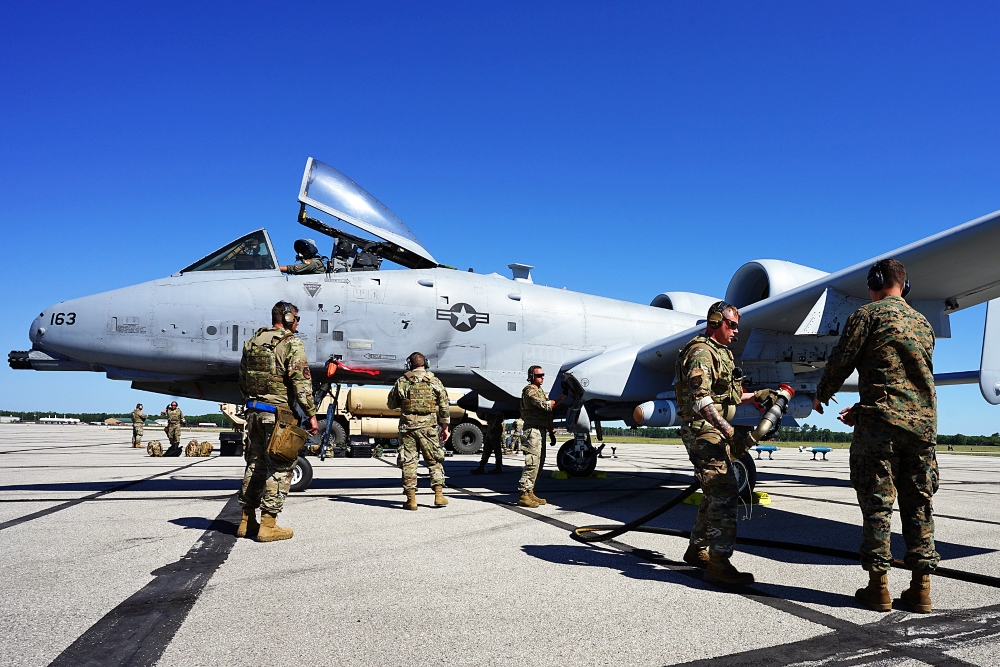Already a hub of aerospace and defense that generates $30 billion in economic impact, Michigan is adding additional resources to the sector to keep the state at the forefront of national security. In April 2024, Gov. Gretchen Whitmer announced the state’s new Office of Defense and Aerospace Innovation (ODAI) under the direction of Col. John Gutierrez, U.S. Marine Corps (Ret.). The new office will build on Michigan’s Arsenal of Democracy legacy by attracting and supporting the latest in aerospace and defense projects.
“Democracy is under threat on a global scale not seen since the Cold War,” said Gutierrez upon being named to lead the ODAI. “Recent events, including the Russian invasion of Ukraine and China’s attempt to disrupt freedom of navigation in the Taiwan Straits, along with ongoing conflicts in the Middle East, underscore the challenges confronting the United States and its Allied Nations.
“Michigan, renowned as the Arsenal of Democracy and a beacon of industrial prowess, holds immense potential,” he added. “I look forward to working with government officials, business leaders, stakeholders, and partners to leverage Michigan’s defense and aerospace capabilities to meet the evolving needs of our nation and its allies at this decisive time.”
THE MICHIGAN DEFENSE CORRIDOR AND STATEWIDE STRENGTH
The Great Lakes State is home to 4,000+ aerospace, defense, and homeland security businesses with a combined workforce of more than 166,000. Macomb County, 20 minutes north of Detroit, hosts the Michigan Defense Corridor, a cluster of aerospace and defense companies including BAE Systems, General Dynamics Land Systems, Oshkosh Defense, GM Defense, and Raytheon Technologies. More than 4,800 defense contracts worth $3.2 billion were awarded to Macomb County companies in 2024.


Michigan is securing a “game-changing” new mission of F-15EX fighters at Selfridge Air National Guard Base, as announced by Gov. Whitmer’s office on April 30. The Boeing aircraft, which entered service in July 2024, is expected to replace the remaining F-15C/D fighters in the U.S. Air Force and Air National Guard. With its legacy of serving F-16s and A-10s, Selfridge is well equipped to support a fighter mission, which includes not just aircraft but also auxiliary and support staff and materials. Pictured are the governor and U.S. Army Maj. Gen. Paul D. Rogers. After the big announcement, the governor took the time to greet and thank the troops for their service to the country.
Photos courtesy of the Executive Office of the Governor
In April 2025, Michigan secured a “game-changing” new mission of approximately 20 F-15EX fighter jets at Selfridge Air National Guard Base. These Boeing aircraft, which entered service in July 2024, are expected to replace the remaining F-15C/D fighters in the U.S. Air Force and Air National Guard, further elevating Michigan’s national leadership in defense and aerospace.
Another notable defense industry asset in the Michigan Defense Corridor is the U.S. Army Detroit Arsenal, which is home to several Army Commands and affiliate organizations. One is the Army Contracting Command-Detroit Arsenal, which handles 15,000 procurement actions worth $10 billion in obligations annually, according to the Arsenal.

Also in southeast Michigan, AM General LLC, which produces specialized vehicles for military and other customers, sited its Technology & Engineering Center in Auburn Hills. ND Defense, maker of the ATLAS family of all-terrain vehicles with military-grade engineering, among other vehicles and battlefield systems, is headquartered in Madison Heights.
Aerospace and defense facilities aren’t just clustered in southeast Michigan. In April 2024, the L3Harris Avionics Products Repair Station in Grand Rapids saw its efforts to work on Airbus Helicopters for European operators pay off when it became the first U.S. repair station to be certified to do so.
In May 2025, the Michigan National Guard, the Michigan Department of Transportation (MDOT), and the Michigan Economic Development Corporation (MEDC) partnered on the Uncrewed Triple Challenge competition to drive innovation in autonomous drone technology. Competitors demonstrated capabilities over land, air, and water in delivering defense, civilian, and commercial cargo. The competition began at Alpena Harbor off of Lake Huron, went through the Alpena Combat Readiness Training Center (CRTC), and ended at Camp Grayling, a military training facility in north-central Michigan.
TRAINING FOR ANY SCENARIO
Alpena CRTC, the largest military airspace east of the Mississippi River with 17,000 square miles of special-use military airspace, and Camp Grayling, the nation’s largest National Guard training installation, comprise the Michigan National Guard’s National All-Domain Warfighting Center (NADWC). Its role is to provide training for the Department of Defense and other government agencies across land, air, maritime, cyber, and space domains.
Grayling is also where Saab is building a production facility that will employ 70 workers when complete in 2026. The facility will produce shoulder-fired munitions and precision fire systems. The Swedish defense, aerospace, and security company already has facilities in six other states. Why Michigan for the munitions plant?

Photo courtesy of DVIDS
“The culture of Grayling is a great match for our company,” says Ben Decatur, senior public relations professional, Corporate Affairs, at Saab, Inc. “The local workforce will help fill jobs we aim to create, and there are local organizations we look forward to partnering with.”
The new plant’s proximity to Camp Grayling allows Saab to engage directly with the company’s customers to better understand their needs and deliver exceptional products at speed, he relates.
The state is also taking steps to ensure Saab’s success in Grayling, Decatur adds. How?
“The MEDC and Michigan Works! will support Saab by providing hiring incentives, training grants like the Going PRO Talent Fund, targeted recruitment, veteran outreach, and custom workforce development strategies to build a skilled local talent pipeline,” Decatur explains. “Kirtland Community College will partner with Saab to create customized technical training, certifications, and apprenticeship programs in advanced manufacturing, ensuring a sustainable workforce aligned with Saab’s needs in Grayling.”
COMPUTING FOR CRITICAL SECURITY PROGRAMS
In December 2024, the Michigan Strategic Fund Board approved a $100 million grant for the University of Michigan to build a two-part, high-performance computing facility in Ypsilanti. The main center, led by Los Alamos National Laboratory, will conduct federally funded research in such areas as cybersecurity, energy security, national security, and artificial intelligence. The $1.25 billion project includes support from the University of Michigan and the state.
“The data-intensive work we do at Los Alamos National Laboratory requires sophisticated and powerful computing resources,” said Thom Mason, director of Los Alamos National Laboratory, at the grant announcement. “Our partnership with the University of Michigan will combine the capabilities of our two great institutions to further R&D for critical national security programs that utilize high-performance computing and AI, as well as other capabilities, such as advanced materials research and manufacturing.”

